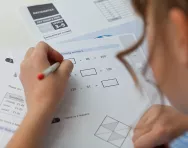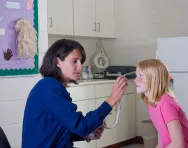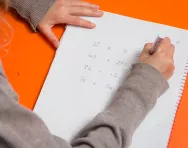TheSchoolRun.com closure date
As we informed you a few months ago, TheSchoolRun has had to make the difficult decision to close due to financial pressures and the company has now ceased trading. We had hoped to keep our content available through a partnership with another educational provider, but this provider has since withdrawn from the agreement.
As a result, we now have to permanently close TheSchoolRun.com. However, to give subscribers time to download any content they’d like to keep, we will keep the website open until 31st July 2025. After this date, the site will be taken down and there will be no further access to any resources. We strongly encourage you to download and save any resources you think you may want to use in the future.
In particular, we suggest downloading:
- Learning packs
- All the worksheets from the 11+ programme, if you are following this with your child
- Complete Learning Journey programmes (the packs below include all 40 worksheets for each programme)
You should already have received 16 primary school eBooks (worth £108.84) to download and keep. If you haven’t received these, please contact us at [email protected] before 31st July 2025, and we will send them to you.
We are very sorry that there is no way to continue offering access to resources and sincerely apologise for the inconvenience caused.
Access arrangements for primary school SATs

Taking SATs – particularly KS2 SATs in Year 6 – can be a stressful experience for some pupils, with one third of parents saying that their children have anxiety around testing.
These worries can be even more pronounced for children with special educational needs or other issues that could affect their performance.
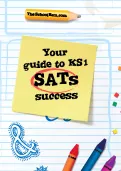
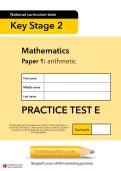
Prepare your child for SATs today
- Your guide to SATs
- KS1 & KS2 SATs revision courses
- SATs practice papers in English & maths
To help these pupils cope and do their best, many will qualify for access arrangements, or special dispensation to make the exam period more manageable.
‘Access arrangements can mean a wide variety of approaches to helping pupils manage statutory assessments, including KS1 and KS2 SATs,’ says Helen Andrews,* a primary school head teacher and mum to a child who qualifies for access arrangements.
‘They are designed to ensure that no pupils who sit an exam are disadvantaged.’
Who is entitled to access arrangements?
Because every pupil is different, there’s no definitive guide to which children qualify for access arrangements. However, pupils who might need special accommodations include those with:
- difficulty reading
- difficulty writing
- difficulty concentrating
- processing difficulties (e.g. the speed at which they can process information)
- a hearing impairment
- a visual impairment
- English as an additional language (i.e. not their first language)
‘In my experience, we use access arrangements for pupils who have special educational needs and disabilities (SEND), those who have limited understanding of the English language, and those who would have difficulties focusing and concentrating during the test, or processing the information quickly enough,’ says Helen.
Children do not have to have a formally diagnosed special educational need or disability, or an Education, Health and Care Plan (EHCP) to be considered for access arrangements.
What sort of help is available?
There are many types of support that children may qualify for during SATs testing, but anything provided must be in line with the support that they usually receive in class.
So if a child is regularly allowed to use a laptop in school rather than writing by hand, they should be allowed to use it during the tests – but a child who normally writes by hand wouldn’t be allowed to type their test answers.
‘Schools must be able to evidence that the support the child receives during the test is reflective of the support that is given during usual classroom practice,’ explains Helen.
Possible access arrangements include:
Additional time
The eligibility criteria for this varies, but pupils with an EHCP are automatically allowed 25% additional time to complete their tests. Other pupils may qualify for extra time if, for example, they need extra time to demonstrate their knowledge and understanding, are waiting for confirmation of an EHCP, or use enlarged print versions of the tests.
Note that this doesn’t apply to KS1 SATs, as they are not formally timed.
Adaptations to test papers
This could include photocopying test papers onto coloured paper, enlarging print or diagrams, or translating questions (where appropriate) into a child’s first language. Schools must apply for permission to open papers early to make these adaptations.
Schools do not have to apply for permission to open KS1 papers early, as the tests are administered flexibly throughout May.
Compensatory marks for spelling
If a child has a profound hearing impairment that means they can’t complete the spelling paper, which is read out by the teacher, they can be awarded compensatory marks based on their scores in the other English papers.
In KS1 SATs, the grammar, punctuation and spelling test is optional anyway – schools decide whether to administer it.
Scribes
These are writing assistants who write down the answers that a pupil dictates. Scribes may be used for children who are unable to write or have difficulty writing, are unable to use a word processor, or are known to experience fatigue. Scribes can’t give any help other than writing down the child’s own answers.
Transcripts
If a child has problems making their writing legible, an adult can make a transcript of their paper at the end of the test so the marker can understand it. The transcriber must avoid changing the pupil’s answers.
Word processors and other electronic aids
If a child uses these during normal class time to make their work accessible, they should be able to use them during tests, but any functions that may give them an unfair advantage – e.g. a calculator app – must be turned off.
Written or oral translations
Translations may be made in advance if a child speaks English as an additional language. However, the questions themselves and passages of text for reading comprehension can’t be translated – only directions and instructions.
Readers
A reader may be used to help children who have difficulty reading, perhaps due to dyslexia or visual processing difficulties. There are rules about what a reader can and can’t read, and ideally children who need a reader should sit their tests in another room so they don’t disturb other pupils.
Prompters
A person known to the pupil who can draw their attention back to the task if their concentration wanders or they become distracted, e.g. by saying their name or touching their arm.
Rest breaks
Children who struggle with concentration or fatigue may be given rest breaks during the paper. Pupils must stay under supervision during their break and must not have any contact with children who have already finished the test.
Highlighter pens
Pupils can use highlighters to mark passages of text in all papers, as long as they usually do so in class.
Taking the test at an alternative location
This could include at the pupil’s home (e.g. if they are very anxious or have a transmittable infection like chickenpox) or at a pupil referral unit.
Applying for access arrangements
Access arrangements are organised by schools, and overseen by the Department for Education (DfE).
Some arrangements must be applied for in good time, including requests for additional time (usually KS2 only), early opening of papers (KS2 only) and compensatory marks for spelling.
Other arrangements don’t have to be applied for in advance, but the school has to notify the Standards and Testing Agency (STA) about things such as whether any child used a scribe or reader after the tests have been completed.
‘Schools are required to evidence how the child meets the criteria set by the DfE and must be able to prove that permission to use access arrangements has been sought and agreed through the DfE application process,’ says Helen.
‘This may be checked during a monitoring visit during SATs week by the STA or Local Authority.’
Schools should always discuss access arrangements with parents. ‘If a parent believes their child is entitled, this should be an ongoing conversation with the class teacher,’ says Helen.
‘If a request was turned down, it would be on the basis of the child not meeting the criteria, or the school being unable to evidence the support requested as usual classroom practice.’
Illness and injury and SATs
Some children will inevitably be unwell during SATs week. If a child is ill on the day of the test and absent from school, they should not take it, but may be able to take it on another day.
If a child becomes ill during the test but completes it, their mark will stand. If need be, they can have a rest break and see if they feel able to continue; if not, and they’re sent home, the partially completed paper will be marked.
A student who sustains a wrist or hand injury that affects their ability to write within a week of the test, they may be allowed a scribe, plus 25% additional time if they’re unfamiliar with working with a scribe.
Special considerations in SATs testing
Some pupils will be going through difficult circumstances at the time of testing, such as:
- Bereavement of a family member or close friend within 12 months of the test
- The pupil or a close family member having a diagnosed terminal illness at the time of the test
- A serious domestic incident occurring within two weeks of the test
- The pupil or a close family member suffering a severe or permanent injury or illness, or undergoing major surgery, within six months of the test
- A longer term major incident that occurred in the six months before the tests and is still having an impact on the child at the time of the test.
In these situations, schools can make applications for special consideration after the pupil has taken all their tests. Their results won’t be adjusted, but there will be a + sign on their results page to indicate that their circumstances have been taken into account.
* Name has been changed to protect teacher and child confidentiality.

